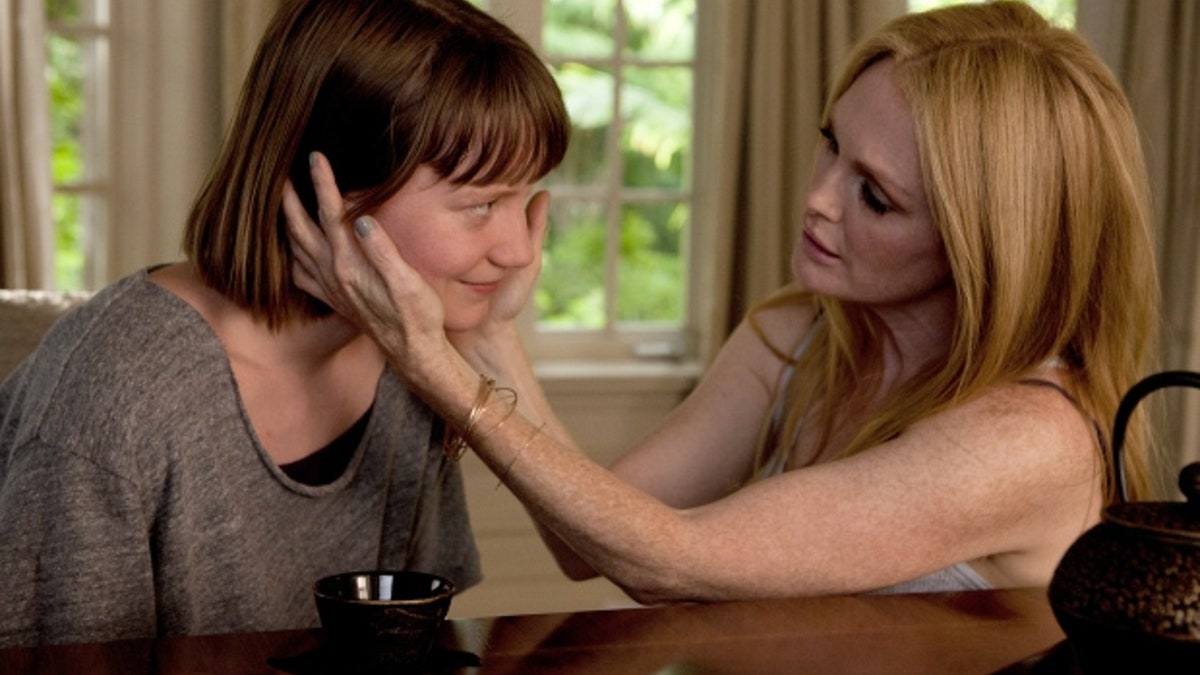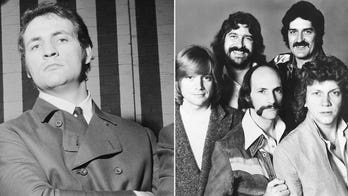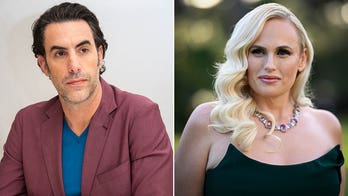
A scene from "Maps to the Stars." (eone films)
CANNES – Hollywood gets flayed wide open in David Cronenberg’s new dark comedy, “Maps to the Stars.” But the director of “The Fly” and “Crash” says his latest story of desperate people doing desperate things could have taken place wherever the stakes are high.
“The movie is not only about Hollywood and the movie business. You could set this in Silicon Valley, you could set it on Wall Street, any place where people are desperate, ambitious, greedy, fearful,” Cronenberg said Monday at the Cannes Film Festival. “So you could really set it anywhere.”
But set it in Hollywood he did, and so the characters in “Maps to the Stars” are a rogue’s gallery of the worst celebrities you see every week on the cover of the tabloids.
Fading actress Havana Segrand (Julianne Moore) is so desperate to stay relevant, she wants to play her dead, more famous mom, who she hated, in a new movie.
Bratty “Bad Babysitter” child star Benjie Weiss (Evan Bird), a Justin Bieber lookalike fresh out of rehab, is trying to prove he can carry the sequel – and pocket $8 million -- without falling off the wagon.
Jerome Fontana (Robert Pattinson) is a struggling actor working as a chauffer and sleeping with a burn victim, Benjie’s disturbed sister Agatha (Mia Wasikowska), in order to write a screenplay about what it’s like to sleep with a burn victim.
Benjie and Agatha’s dad (John Cusack) is a self-help guru making millions off infomercials, books, and treating celebrity clients with his Oprah-esque mumbo jumbo. Oh, and he married his sister. Who’s his screwed up kids’ mom.
Veteran actor Cusack said it all rang “strangely” true to him.
“I thought it was a very familiar ecosystem... It could be Washington, it could be the financial district, it could be Silicon Valley, but something about LA and fame and the hunger and the need for acknowledgement is almost a little bit more infantile,” he said. “But it felt very familiar in that way. It was interesting, when you read [the script], you didn’t think it went too far. You thought it was just about right.”
Cronenberg, who called himself a “card-carrying existentialist,” said given the characters’ professions, which rely on them being seen and heard by as many people as humanly possible, their desperation makes sense.
“For Havana, she’s … an actress who’s being discarded by the industry,” he explained. “She’s terrified that she will cease to exist, that it will be a living death. And that’s where the desperation comes from, and the ambition too, because it’s a matter of existence or non-existence.”
And when existence is defined by seeing your face on a screen, things can get tricky. And funny.
“There is something funny, and sad of course, about people consistently missing the mark, and that’s what the whole movie is about,” Moore said. “Looking to the stars, and looking out, rather than looking within.”
The movie’s screenwriter, Bruce Wagner, said that today, with social media allowing people to make themselves the stars of whatever virtual worlds they want to build, the problem of pursuing fame for personal validation is at its historical peak.
“To amend Warhol, who said everyone will be famous for 15 minutes, I think in the future, which is now, everyone will be famous all the time,” he said. “That’s how it’s changed.”
But the desire for fame, he added, is as old as humankind.
“In terms of desperation and need, there are old Buddhist texts that say the most difficult challenge for a human being, including the most solitary hermit, was the challenge of fame -- to not say I am the most famous solitary hermit,” Wagner explained. “So these are timeless concerns, and as long as there is the need to be seen, and the need to be paid attention, it will always exist. The Kardashians would have existed in the time of the Pharaohs.”
Moore added the irony of it all is that “in reality, the only way … to be seen, is in an intimate relationship with another person, which is the most difficult thing to attain."
Again, this is a comedy.
"I think all my movies are funny," Cronenberg said. "And I think that this one is no exception."






